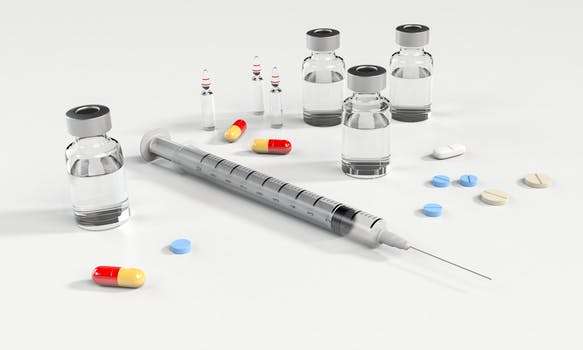What is inflammatory bowel disease (IBD) ?
Inflammatory Bowel Disease (IBD) is a term used for a group of chronic inflammatory illnesses affecting the digestive system. With roughly one million sufferers in the United States, Inflammatory Bowel Disease is chiefly composed of two disorders: Crohn’s Disease (CD) and ulcerative colitis (UC).
What takes place with Inflammatory Bowel Disease and Crohn’s disease and ulcerative colitis the body’s immune system has an exaggerated response to an unknown bacteria or condition of the bowel system, releases a large number of white blood cells to the affected area as well as inflammatory mediators and as a result, the area becomes drastically inflamed. This swelling causes ulcerations and injury to the bowel, as well as various other negative side effects.
Natural Prevention and treatment of Urinary Tract Infections
WHAT is the CAUSE of IBD?
Although extensive research has been done, it is unclear what causes the excessive immune response in Inflammatory Bowel Disease. Some believe it is the body’s mistaken identification of good bacteria in the bowel as being dangerous, while others believe it is a foreign agent that triggers the immune system, which in turn, does not shut down properly. Whatever the reason, this is a chronic inflammatory condition which will continue to be a problem for sufferers for an extended period of time with both remissions and re-attacks. Genetic susceptibility has also been identified.
17 Practical Steps to Overcome Loneliness
What is the difference between Crohn’s diseases and ulcerative colitis?
The primary difference between Crohn’s Disease and ulcerative colitis is the location of the affected area.
Crohn’s Disease may affect any portion of the digestive system from the mouth to the anus and may occur in patches (segments), with unaffected areas in between. However, Crohn’s Disease primarily affects the end of the small intestine and the beginning of the large intestine with rectal sparing. On the other hand, ulcerative colitis only affects the colon and almost always affects the rectum. The affected area is continuous. Often, it is very difficult to determine which form of Inflammatory Bowel Disease a patient is suffering from and misdiagnosis is common.
What are the symptoms of inflammatory bowel disease?
Symptoms common of Irritable Bowel Disorder are diarrhea, abdominal pain, rectal bleeding, and occasionally weight loss. These signs are often present with Crohn’s Disease, as well as ulcerative colitis. As a result of blood loss, many patients also become anemic. The type of anemia is usually microcytic (smaller Red Blood Cells size) hypochromic (Less hemoglobin content) anemia of iron deficiency. This can be especially overwhelming to previous illnesses.
Complications of inflammatory bowel disease
Likewise,complications can arise from blockages that occur due to excessive bowel swelling in the inflammatory stage and the presence of scar tissue. For this reason, surgery is sometimes necessary to remove damaged areas of the digestive system to avoid obstructions. Intestinal perforation with subsequent inflammation of the peritoneum can occur. Obstruction and perforation cause acute abdomen and are considered surgical abdominal emergencies. There are also side effects experienced in other areas of the body in addition to the digestive system like arthritis, osteoporosis, corneal ulcers, gall bladder stones, liver cirrhosis and fatty liver.
For the most part, Inflammatory Bowel Disease and Crohn’s Disease are often used interchangeably.
However, it should be understood that Inflammatory Bowel disease does not necessarily translate to Crohn’s Disease. There are other forms of Inflammatory Bowel Disease that may affect sufferers in much the same way.
What is the food that helps relieve inflammatory bowel disease?
What is the Natural treatment for inflammatory bowel disease?
During inflammatory bowel diseases attacks try
Bananas, applesauce, canned varieties of fruit.
White bread,crackers made with white flour, plain cereals.
White rice, refined pastas.
Potatoes after peeling the skin.
Cheese.
Smooth peanut butter.
Bland soft foods.
Cooked vegetables
Broth
Broiled or steamed fish (e.g., herring, salmon,swordfish or pollack).
Olive oils.
What are the beverages and food that increase Inflammatory Bowel Disease attacks?
What are the beverages and food you better avoid if you have Inflammatory Bowel Disease?
Foods and beverages you better avoid during the severe attacks as they increase the irritability of the bowel and aggravate the symptoms
Fresh fruit (unless blended or juiced).
Prunes, raisins or dried fruit.
.Uncooked vegetables and raw foods.
High-fiber foods (such as fiber-rich breads, cereals,
nuts and leafy greens).
High-sugar foods.
Skins, seeds, popcorn.
High-fat foods.
Spicy foods.
Beans.
Some dairy products.
Large food portions.
Caffeine in coffee, tea and other beverages.
Ice-cold liquids (even water).
The golden Rules for a healthy happy life:
Eat smaller amounts at frequent intervals to rest the bowel.
Reduce the amount of greasy or fried food. Too much fat cannot be completely absorbed in a diseased bowel and can cause diarrhea.
Get enough sleep.
Engage yourself in a physical activity.



